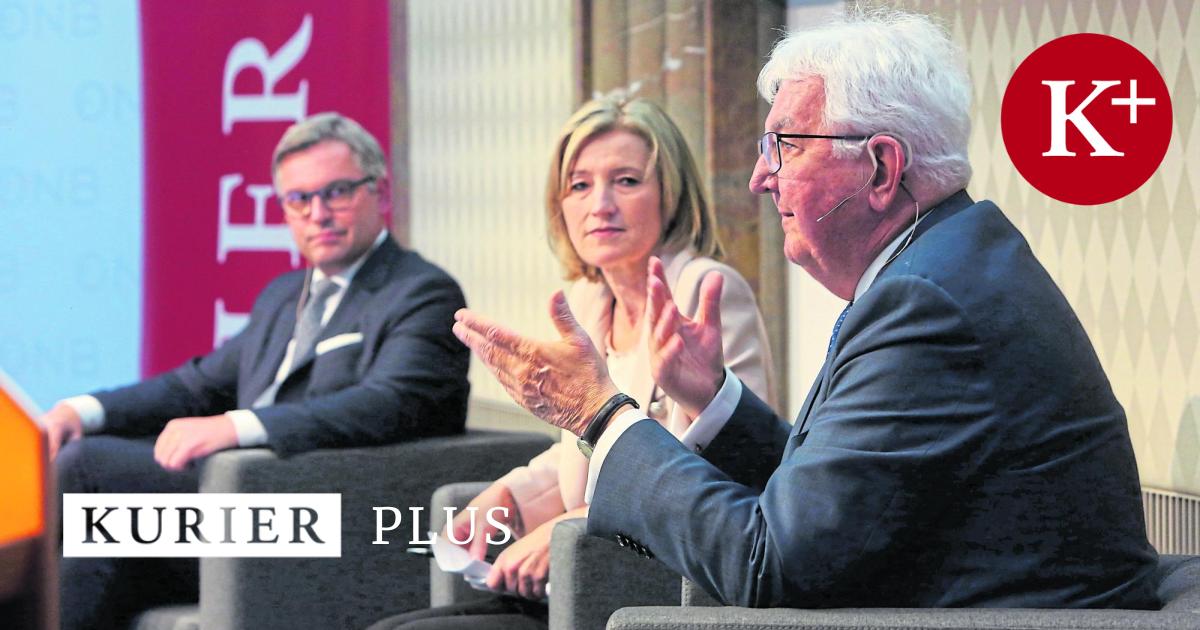OeNB Governor Holzmann and Finance Minister Brunner answered questions about cash and inflation at the KURIER Talk at the National Bank
Anyone who prefers to pay in cash when shopping or in a restaurant is in good company. “My wife pays 90 percent in cash, I pay 50 percent with a card,” said Finance Minister Magnus Brunner at the KURIER interview (title: “Red ma übern Euro”) in cooperation with the National Bank on Tuesday evening in Vienna.
A mobile phone vote in a packed hall shows that most of the audience have a similar payment behavior to that of the minister: 49 percent pay both cash and with a card (33 percent tend to use a card, 18 percent tend to use cash).
tons of steel
This also explains why around 31 billion euros in cash are still in circulation. Much of it in the form of small change, which upsets KURIER reader Karl Piaty quite a bit. From the point of view of the confectioner from Waidhofen an der Ybbs, the National Bank could save itself the small cent coins – after all, the Finns do it too. Piaty calls copper coins a waste of resources; at the latest when they disappear into Rex-Glasln …
National Bank Governor Robert Holzmann has numbers ready. “We have 11,000 tons of steel and 600 tons of copper in circulation in the form of coins,” he calculates. Nevertheless, he doesn’t want to know anything about a waste of resources. After all, archaeological finds would also prove the durability of the coins, he jokes. “By the way, banknotes are reprinted more often than you would think.”
In any case, the large bills have recently caused more excitement at the political level – keyword EU-wide cash limit and the question of where this should be set. Last year, the EU Commission campaigned for an EU-wide regulation, and countries such as France are already calling for the upper limit to be lowered from 10,000 to 5,000 euros. Holzmann: “I’m against any cash limit.”
Nevertheless, some initiatives are already evoking the end of cash, such as “SOS Cash”, whose “plebiscite for unrestricted cash payments” has been signed by more than half a million people. Finance Minister Magnus Brunner reassured: “The cash stays. There are no other signs at the European level either. If there are any, we will fight back.”
In contrast, the monetary policy measures taken by the central banks have not been very successful so far, criticized the panelists. The bond purchase program has ended and the base rate is being raised step by step. So far, this has changed little or nothing at all in the wave of inflation.
From the point of view of the National Bank governor, this is not surprising. “Twelve to 18 months will pass before the measures take full effect,” he says. “Monetary policy doesn’t work at the push of a button.” Especially not when several unfortunate factors interact. As Brunner summarizes, such as the supply chain problems, the simultaneous overheating of the demand for energy and the rising energy prices. In his opinion, the central banks acted “possibly too hesitantly”. Ultimately, they are the only ones with effective leverage to combat inflation.
